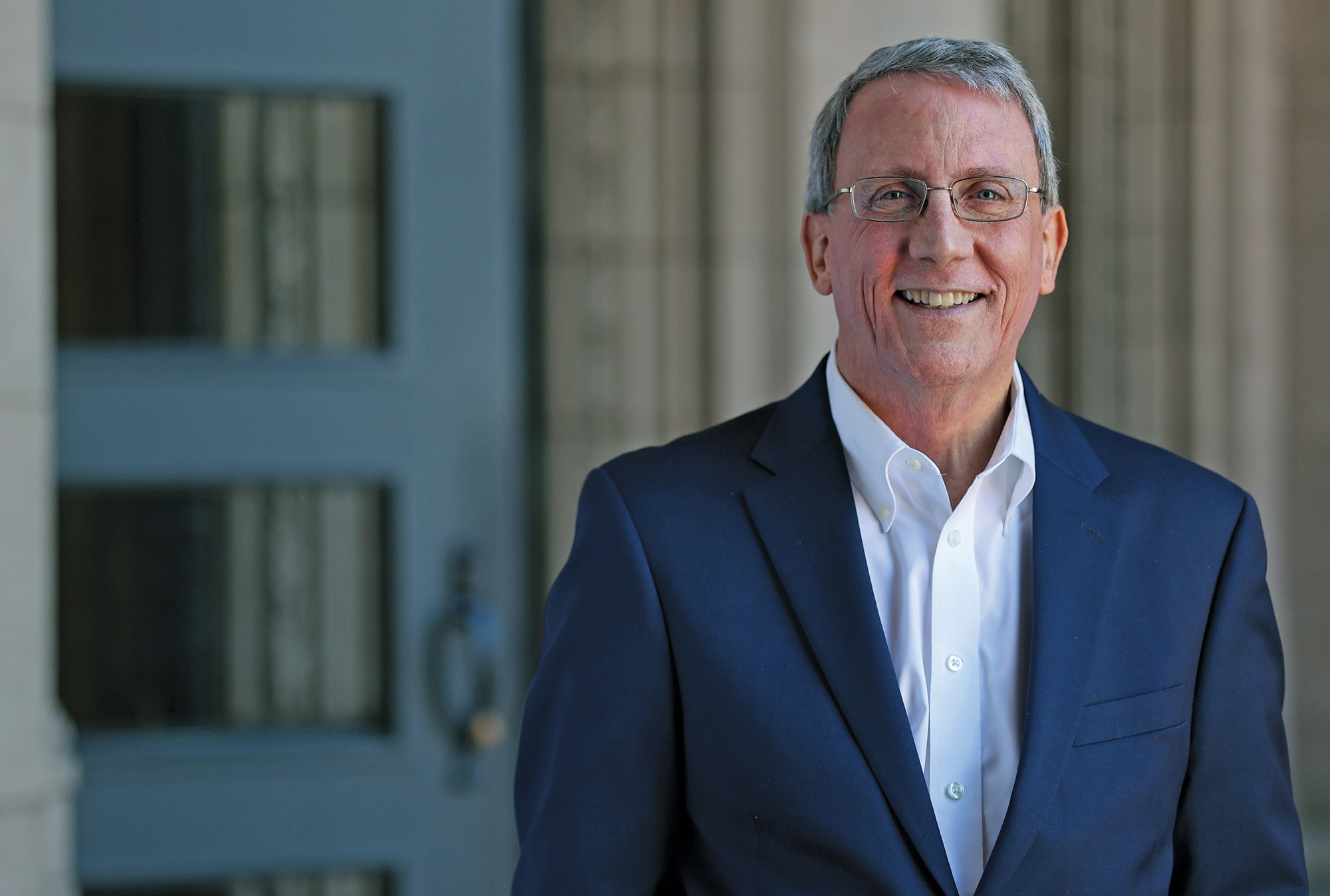Helping PROVAIL prevail Helping PROVAIL prevail Helping PROVAIL prevail
Mike Hatzenbeler’s goal is to help people with disabilities fulfill their life choices.

Mike Hatzenbeler’s goal is to help people with disabilities fulfill their life choices.
Every day, Mike Hatzenbeler goes to work with the goal of giving those with intellectual and developmental disabilities the opportunity to take their rightful place in the community—a big change for those who have lived in institutions, experienced discrimination or been excluded in other ways.
“It is about being a part of the community,” Hatzenbeler says. “We don’t try to lead them to jobs we think they should take. We ask them what they would like to do with their life, what they are interested in and then we work to create that opportunity for them.”
Hatzenbeler, who studied political science while at the UW from 1984 to 1988, has spent his whole career in what he categorizes as community-building work. Previously with an independent school in Honolulu before starting at Seattle-based PROVAIL in 1995 as director of development, he has been the organization’s president and CEO for the past two decades. PROVAIL, which primarily serves King and Snohomish counties, is Washington state’s largest multi-service agency dedicated to meeting the needs of children, youth and adults with disabilities who need an integrated, complex set of services to live life according to their own choices.
“Many people don’t know PROVAIL also focuses on assistive technology,” he says. “Sometimes people think you just get someone a wheelchair, they can put their feet on the footrest, use a joystick and that takes care of the problem. But do the switches work for the issues they have? Is it truly contoured physically to them, to where it enhances how they are trying to live their life? It’s more than just finding a piece of machinery; it takes a lot of thought and time to get proper customization.”
“I got my chance to live my dream of helping others … We will keep pushing forward for other people’s dreams, too.”
Mike Hatzenbeler
Helping 1,000 people a year and employing 450 employees, PROVAIL allows Hatzenbeler to serve in a way he never imagined he could. “Being here a long time, you get to see the effect it has on people in the long term,” he says. “We don’t just help get them set up in something and that’s it. They can have issues that come later and we’re here. They know they have a team behind them, that they aren’t just left alone. It makes a difference.”
Hatzenbeler, who grew up in Vancouver, Washington, traces his career to attending the UW as a political science major. “The political science department and being in the political science honors program, it just gave me such an opportunity to grow,” he says. “You learned across a wide range of topics—from the history of politics in the city of Seattle to important macroeconomic and political issues worldwide. With political science professors like Michael McCann and Lance Bennett, you didn’t just learn from them, but they invited you in to discussions and were truly interested in your input. Those opportunities were incredibly valuable and helped you expand your thinking and problem-solving skills.”
Coming on campus to recruit, the Washington Public Interest Research Group hired Hatzenbeler as a campaign director. He served in the role from 1988 to 1990. Previously, he was a student volunteer for the organization after being introduced to the WASHPIRG chapter on campus. “The PIRGs is a nationwide movement of student-led organizations,” he says. “It was opportunities at school like this active chapter, campaigning around consumer and environmental issues, that taught me so much. They were working on the Hanford nuclear waste issue, and that’s how I became involved in that topic. The school was always encouraging students to be active in learning about the issues that affect society and seeking out new ideas and solutions; that’s the environment that the University of Washington gives you,” he says.
As Hatzenbeler is staring down the early days of his third decade in his present role, a word that comes to mind to him is more. “The need is there to serve more people and we need to try and figure out a way to do that …” he says. “You see the difference it makes. People’s lives getting better, the great work they do, we all have dreams of the life we want to have, and a community can come together and help each other. I got my chance to live my dream of helping others …We will keep pushing forward for other people’s dreams, too.”